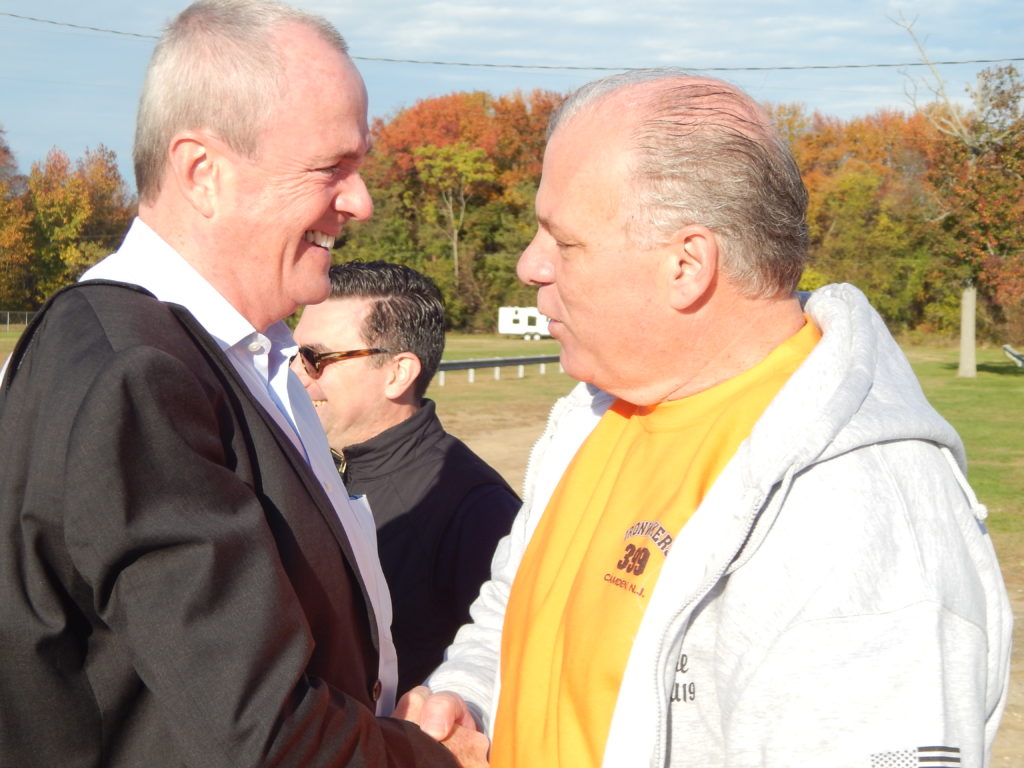A Legal Fig Leaf, to be Sure

Despite mounting criticism of the decision by New Direction New Jersey to refuse to disclose its financial supporters, its officers seem determined to tough it out, endure and shrug off the unfavorable media coverage, seemingly confident the issue will fade quickly as other high-profile concerns capture public attention.
The nonprofit political action committee is governed by close allies and confidants of Gov. Phil Murphy and, despite the pledge made by his campaign manager Brendan Gill when the group was created in November 2017 that its donor list would be available for all to see, it underwent an abrupt change of heart and intends to keep the identity of its financiers secret.
The group was established to promote the governor’s legislative agenda, tout his accomplishments, and endeavor to build broad support for his Administration. It has already aired two television commercials on his behalf and presumably plans additional ones as the year unfolds.
A spokesman for the PAC explained that “a toxic political environment” convinced the group to adopt a non-disclosure policy.
Presumably, it didn’t occur to them that hiding the identity of their financial backers contributes to the toxic political environment that offends them so.
The PAC is administered by seasoned political operatives, veterans of statewide and local campaigns ---- campaign consultants Steve DeMicco and Brad Lawrence most prominently --- who would now have the public believe they recently discovered the “toxic political environment” and the compelling need to protect their check writers from it.
It’s the “Casablanca” defense writ large: “I’m shocked, shocked to find that gambling is going on in here,” said the prefect of police as he held out his hand to collect his winnings.
Toxicity has been a constant component in political discourse from the national to the smallest municipal level. To be sure, it is perhaps stronger today that it has been in the past, but it is an environment in which the PAC officials have made their living for years and continue to do so.
All those who practice politics or observe it from the media or academia in this state can be forgiven for their skeptical response to the non-disclosure rationale.
A more likely explanation is that some of the donors may have insisted on non-disclosure as a condition of their contribution or that private interest groups poured funds into the PAC in furtherance of their own agenda and revealing their generosity could be embarrassing at the very least.
Senate President Steve Sweeney (D-Gloucester) hinted as much when he mused aloud that the New Jersey Education Association --- a bitter opponent of his --- might well be found among the donor list at a substantial level.
The governor is prohibited by law from coordinating with the PAC’s activities or directing it to undertake any steps on his behalf.
A fig leaf --- a legal fig leaf, to be sure --- to protect him from responsibility for any decisions it makes, including that to withhold the identity of the donors.
The episode has given Sweeney yet another opportunity to raise questions and concerns about the Murphy Administration. He was quick to point out that, despite the non-involvement strictures placed on him, the governor could easily issue a public call for the
PAC to meet transparency obligations and release a list of its supporters. He reminded his listeners that it was Murphy who expressed his expectation that disclosure would be a part of the PAC operations when it was created a year ago.
The group’s spokesman emphasized its compliance with all state and federal laws and that it was within its legal right to maintain the anonymity of its donors.
While there is some debate over whether the letter of the law is being adhered to, the PAC position appears to be a solid one --- it is not obliged to disclose its supporters and it does not intend to do so.
Its need to protect against a “toxic political environment” rationale may be thin, but it is for the moment sufficient and will hold until any ambiguities in the law are cleared up and definitive guidelines written.
The decision to tough it out is based on a belief that the political harm in doing so will be minimal, compared to the potential uproar which could ensue if the donors are outed.
The global issue of campaign finance, fund-raising techniques, expenditures, and the like is, in the minds of many, so complex and convoluted that voters quickly tire of it, preferring to leave it to elected officials and the courts to sort out. (H.R. 1, the symbolic and literal first bill of the new Congress includes a number of voting rights and ethics provisions, including requiring disclosure of donors who contribute in excess of $10,000.)
The whiff of hypocrisy in the air created by the New Direction New Jersey PAC will dissipate over time. History suggests that similar issues and controversies have a limited shelf life.
For a governor, though, facing a difficult year after coming off a less than outstanding one, it’s a distraction he could have done without. Undermining his credibility and oft-stated commitment to transparency in government certainly hasn’t helped.
Carl Golden is a senior contributing analyst with the William J. Hughes Center for Public Policy at Stockton University.






If I am not mistaken - the governor is actually n the ads they run speaking - he could stop that in NY minute if he wanted.
Truth is that Murphy is no different than other politicians. He attempts to put himself " above the fray" but give me a break! He made a promise...disclose, he broke his promise. Hey Phil...you are no better than anyone else!